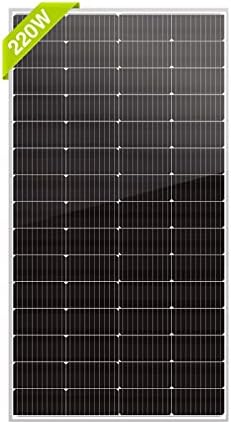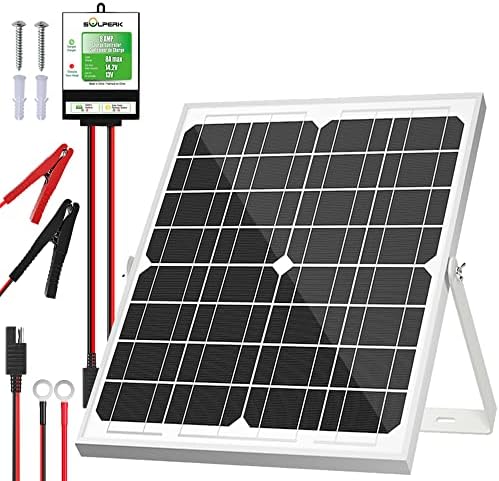## The Dos and Don’ts of DIY Solar Panel Cleaning
When I first set up my solar panels, the bright promise of sustainable energy lit up my off-grid life. I watched as they cranked out power under the sun, blissfully unaware of how much dust and dirt could dim that energy. One day, after a relentless wind storm swept through, I decided it was time for a good cleaning. Climbing up to my roof armed with a garden hose and a bucket of soapy water, I set to work, only to create a mini waterfall that dripped unceremoniously onto my neighbor’s car. While the idea was good, my execution… not so much. Cleaning solar panels isn’t just about splashing water and wiping surfaces; it’s an art. With time, I learned the essential dos and don’ts that not only keep your panels in top shape but also save you from hysterical neighbors. So let’s dive into cleaning your solar panels in an upbeat, effective way!
### Why Clean Your Solar Panels?
Before jumping into the nitty-gritty of cleaning, it’s crucial to understand why this task deserves your attention. Solar panels can accumulate dust, dirt, bird droppings, and even pollen, all of which can significantly reduce their efficiency. Studies show that dirty panels can lose up to 30% of their energy output. Regular cleaning ensures maximum efficiency, prolongs the life of your system, and, most importantly, saves you money.
### The Dos of DIY Solar Panel Cleaning
#### 1. **Do Inspect Before You Clean**
Begin with a thorough visual inspection. Look for any signs of damage, such as cracks, and make sure there are no loose wires. Safety first! If you notice something amiss, call a professional before you bust out the sponge.
#### 2. **Do Use Soft Tools**
When it comes to cleaning materials, softness is key. Opt for a soft brush or microfiber cloth to avoid scratching the solar panels’ surfaces. Harsh materials can ruin the panels and lead to costly replacements.
#### 3. **Do Choose the Right Time**
Timing matters! Early mornings or late afternoons are ideal for cleaning solar panels. Avoid cleaning them under the scorching midday sun, as high temperatures can cause water to evaporate too quickly, leaving behind streaks and spots.
#### 4. **Do Use Pure Water**
Using distilled or deionized water is the gold standard for cleaning solar panels. This type of water is free from minerals and impurities that could leave residues or mineral spots on the surface.
#### 5. **Do Get a Helper**
Cleaning solar panels can be tricky, especially if you’re on the roof. Having a buddy to help can make the process safer and more efficient. Make sure your friend stays on the ground for safety!
#### 6. **Do Use a Hose with a Spray Nozzle**
A hose with a spray nozzle gives you the control you need for a proper rinse. Make sure to spray from top to bottom to let the dirty water run off rather than allowing it to collect and dry.
### The Don’ts of DIY Solar Panel Cleaning
#### 1. **Don’t Use Harsh Chemicals**
Stick to mild soap—never use abrasive cleaners or solvents, as these can damage the panels. Remember, solar panels are there to harness the sun’s energy, and we want to keep them as green and clean as possible.
#### 2. **Don’t Clean When It’s Windy**
Wind might be great for kite flying, but not for cleaning solar panels. Dust and debris can be whipped up into your cleaning process, making it counterproductive and possibly even risking damage to your panels.
#### 3. **Don’t Use a Pressure Washer**
While it may seem quick and effective, using a pressure washer can dislodge the seals on your solar panels and potentially crack the glass. Gentle is the way to go!
#### 4. **Don’t Overlook Safety Gear**
If you need to access your roof, prioritize safety gear. Invest in non-slip shoes, a sturdy ladder, and consider using a harness to ensure you’re secure while cleaning.
#### 5. **Don’t Skip the Final Rinse**
After using water and soap, make sure to give the panels a good rinse with clean water. Leaving soap residues can cause spotting and residues that attract dirt in the future.
### Pro Tips for Effective Solar Panel Cleaning
– **Regular Maintenance:** Schedule cleanings every 6 to 12 months depending on your environment. If you live in a dusty area, you may need to clean more frequently.
– **Track Your Efficiency:** Keep an eye on your energy output. If you notice a drop without any clear reason, it may be time to clean.
– **Check for Shade:** Trees or buildings may have grown to cast shade on your panels, limiting their efficiency. Trim any overgrown branches that might obstruct sunlight.
– **Professional Cleaning:** If your panels are particularly large or high, consider hiring a professional for cleaning. They’ll have the right equipment and skills to do it safely and effectively.
### The DIY Solar Panel Cleaning Checklist
Here’s a handy checklist to keep you organized and ensure you don’t miss any essential steps:
1. **Gather Supplies:**
– Microfiber cloth or soft brush
– Hose with a spray nozzle
– Mild dish soap
– Distilled or deionized water
– Safety gear (gloves, non-slip shoes, harness)
2. **Inspect Panels:**
– Check for damage
– Ensure there are no obstacles
3. **Select Timing:**
– Clean in the early morning or late afternoon
4. **Clean Panels:**
– Rinse with water
– Use soap if necessary
– Gently scrub with soft tools
– Rinse off all soap
5. **Final Check:**
– Ensure panels are streak-free
– Look for any remaining debris
### The Conclusion: Shine Bright, Live Bright!
Cleaning your solar panels doesn’t need to feel like a chore—treat it as an opportunity to check in on your energy-generating friends! When approached with the right mindset and tools, maintaining your solar panels can be a satisfying part of the off-grid lifestyle. By adhering to these dos and don’ts, you’ll not only enhance the efficiency of your solar system but also avoid any unexpected mishaps. So grab your supplies, head to your roof, and let those panels shine bright so you can live bright!



